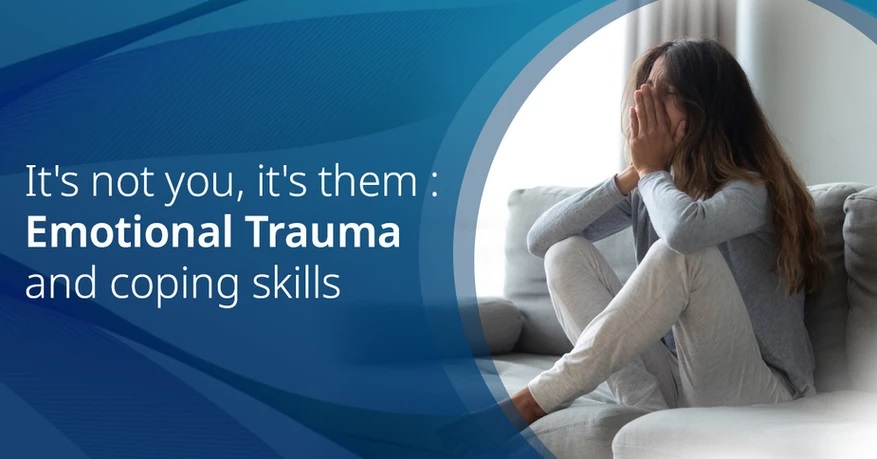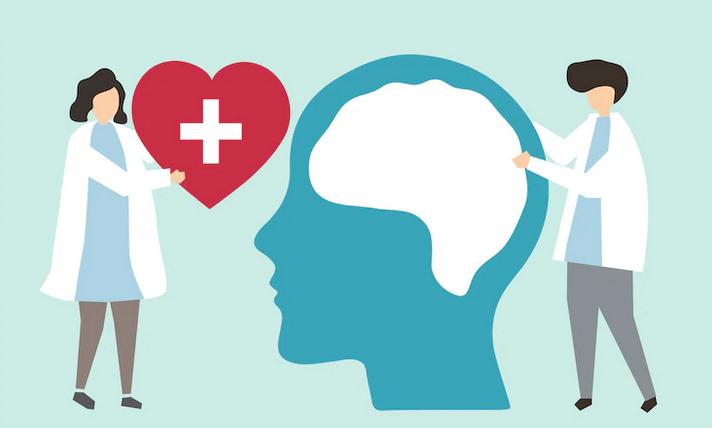According to the American Psychological Association (APA), trauma is “an emotional response to a terrible event like an accident, rape, or natural disaster.”
However, a person may experience emotional trauma as a response to any event they find physically or emotionally intimidating or dangerous.
A traumatized person can feel a range of emotions both immediately after the event and in the long term. They may feel overwhelmed, helpless, troubled, or have difficulty processing their encounters. Trauma can also cause physical symptoms.
As we understood that psychological trauma is a response to an event that a person finds highly stressful, some examples include being in a war zone, a natural calamity, or an accident. Psychological trauma can cause a wide range of physical and emotional symptoms and can have long-term effects on the individual’s well-being.
Emotional trauma can be identified in the following types –
-
Acute – Emotional trauma resulting from a single situation.
-
Chronic – This results from continued exposure to stressful or dangerous events, such as bullying, child abuse etc.
-
Complex – Emotional trauma resulting from multiple events that were stressful.
Impact of trauma, especially emotional trauma results from psychological abuse stemming from dysfunctional relationships right from childhood. These may include –
-
neglect
-
bullying
-
discrimination
-
separation from a parent
-
serious illness
-
poor living conditions (poverty etc.)
-
substance-dependent caregivers
-
physical violence
All these factors mostly lead to teen mental trauma and it becomes essential to devise a coping skills toolbox in order to curb down the impact of trauma in individuals. Trauma in adolescents can be hidden or recurring events. A person can also experience trauma after witnessing something traumatic happening to someone else, which is known as vicarious trauma. A teen’s emotional health is vulnerable when exposed to such traumatic situations, and its impact can be very lasting sometimes.
Impact of trauma –
There is no right or wrong way to think, feel, or respond to emotional trauma. Impacts and responses to emotional trauma vary from person to person. As harmful as it may sound, a few impacts of trauma are listed below –
-
denial
-
anger, irritability
-
mood swings
-
difficulty concentrating
-
guilt, shame
-
numb
-
confusion
-
anxiety
-
withdrawal
-
nightmares, insomnia
-
changes in appetite
-
startled easily
-
muscle tension
-
headaches
-
sweating, racing heartbeat
-
unexplained aches and pains
Someone who has experienced emotional trauma may also go on to developing other mental health problems, like depression, anxiety, and substance abuse issues.
Trauma and the teenage brain –
Some adolescents and prepubescents who have experienced emotional trauma react in some typical ways. Listed below are such reactions and some tips as o how you can help with trauma in adolescents –
-
Regression – They may mentally return to an earlier stage of life where they felt safe. They might fear being alone, or start wetting their bed. If your child responds this way, be understanding and comforting. Remember – they want to feel safe.
-
Sleep disorders – They may feel easily spooked or startled, hence facing difficulty in falling asleep. They make wake more frequently or have troubling dreams. In such a case, try indulging in quiet activities with your child in the evening, like reading or going for a walk. It may take a while before you start seeing positive results. Be patient.
-
Feeling helpless – Gloomy feeling, restless thoughts and sadness can easily take over an individual and their family who are trying to heal from emotional trauma. Writing letters to people who helped, joining campaigns and events that support your cause and being each other’s support can help in restoring hope in the family and friends.
Healing from trauma-
Traumatic symptoms typically last from a few days to a few months. They gradually start fading as you process the unsettling experience(s). But even when you’re feeling better, you may be troubled from time to time by unpleasant memories or emotions—especially in response to triggers such as an anniversary of the event or something that reminds you of the emotional trauma. There might be moments when you hit rock bottom and cannot muster the strength to move forward, but your will to heal from the trauma is enough to get you going.
Recovery tip 1- Get moving – Emotional trauma intrudes with your body’s innate equilibrium, fixing you in a state of hyperarousal and fear. Burning off adrenaline and releasing endorphins, exercise and movement can truly help repair your nervous system. Exercise regularly for 30 mins, including rhythmic moves like jogging or swimming. Add a mindful element to it, like yoga, or breathing exercises.
Recovery tip 2- Self-regulating your nervous system – Whenever you feel agitated, anxious, or out of control, it’s essential to know that you can change your arousal system and pacify yourself. Not only will it help reduce the anxiety, but it will also produce a greater sense of control.
Try breathing exercises or any sensory input like petting an animal or listening to music. You can also try grounding yourself- Look around you and pick four objects that have red or blue in them. Notice how your breathing gets deep and you start getting calmer.
Recovery tip 3- Don’t isolate – No matter how low you feel, don’t spiral in your thoughts and withdraw from people. Connecting to others face to face will help you recover. Make an effort to maintain your relationships and avoid spending too much time alone.
Recovery tip 4 – Take care of your health – Emotional trauma is most likely to take a toll on your physical health. This will expose you to succumb to physical diseases and shortcomings. Eat a well-balanced diet, drink water and lots of fluids, exercise properly and take healthy sleep. Stay away from alcohol and other substances as their use can worsen your symptoms and make you feel more anxious, depressed and agitated.
Recovery tip 5 – Seek therapy – You may not feel comfortable speaking to loved ones about what is going on, or maybe you have, yet they aren’t sure of how to help you.
Counselling offers you a safe space to talk without fear and judgement. They can hear you, and help you come to terms with what has happened, and understand your choices for moving ahead.
Get in touch with us for further information.




